Photographs: Reuters Anusha Soni
Indian Railways' plan to set up the Logistics Corporation of India - a proposed one-stop solution for all its logistics needs - may soon get the nod of the Union cabinet.
Logistics focuses on managing the transfer of goods from point of origin to point of consumption.
Experts argue that the Rs 9,000-crore (Rs 90 billion) logistics industry in India, which is currently growing at over 5 per cent, holds tremendous potential and the Railways has much to gain from this enterprise.
...
How the Indian Railways can revive its fortunes
Photographs: Reuters
However, the ambition of the Railways to graduate from a bulk commodity supplier to a full logistics provider, while a step in the right direction, demands a change in the attitude of the national transporter when it comes to doing business with the private sector.
Allow some room for flexibility and transparency in policy making and the private players will be keen to participate as partners, especially when a mere 1 per cent of the logistics industry currently falls in the organised sector.
...
How the Indian Railways can revive its fortunes
Photographs: Reuters
Logistics in India
The need for logistics services is growing rapidly in South Asia, which is fast-emerging as a manufacturing base for companies.
In India, the logistics industry is highly concentrated, with 20 per cent of the players taking 90 per cent of the revenues, according to a Indian Institute of Management-Calcutta study.
Globally, the logistics industry is estimated to be worth $3.5 trillion. The United States is the largest market.
Complex taxation, multiple permits, high rate of service taxation are among the roadblocks for the industry in India.
...
How the Indian Railways can revive its fortunes
Photographs: Reuters
The proposal is to start the Logistics Corporation as a joint venture or a public private partnership across 28 cities where the traffic volume is more than two million tonnes a year.
The logistics company will use a mixed network of roads and rail.
The majority share will be held by the private player, who will develop warehouses and take care of the entire operations.
The Railways' contribution to the equity will be its land resources in strategic areas in the 28 cities.
An integrated logistics company has been long-awaited in India. While the industry in the US and Europe moved on from being just operation-focused logistics provider to supply chain manager in the 1970s, the Indian logistics industry has lagged.
The Railways' role has been limited to being a supplier of bulk commodities without any commitment to time-bound delivery. Industry players term this as 'highly unprofessional'.
...
How the Indian Railways can revive its fortunes
Photographs: Reuters
Says D P Pande, member traffic, Railway Board,"Acknowledging the limitations of our current freight operations is one reason why we are keen on a logistics corporation."
"As in countries like the US, where trucks can be loaded on wagons and then loaded off on roads for the last mile, a similar set-up is what India looks forward to."
This, of course, would not be the first attempt by the Railways to inject sophistication into logistics. It had trod the route earlier in 2007 when it allowed private participation in container operations.
The Konkan Railways' Roll-on Roll-off, or RORO, scheme (in which trucks are loaded on wagons and offloaded for last mile), has met with reasonable success.
How the Indian Railways can revive its fortunes
Photographs: Reuters
In addition, the Railways has set up the Central Railside Warehouse Company to manage warehouses across India.
"But," says J P Batra, former chairman of the Railway Board, "each of these efforts still lacks integration and there is a need to move beyond container operations."
"The private players have always shown interest in developing the logistics area with the help of the Railways."
There are several benefits to setting up an integrated logistics company. Apart from recovering traffic lost to road (the Railways' share has dropped to 33 per cent from 90 per cent in the 1950s despite its freight rate being lower than that for road transport), a logistics company would diversify earnings for the Railway through profit sharing or by levying haulage charges.
And then, as Vishwas Udgirkar, senior director, Deloitte India, points out, hundreds of acres of Railways land across the country, threatened by encroachment, could also be efficiently monetised.
...
How the Indian Railways can revive its fortunes
Photographs: Abhinav Phangcho Choudhury/WikimediaCommons
Such a development would also help keep price of goods under check. According to a study done by the Indian Institute of Management-Calcutta, the annual logistics cost for a country varies between 9 and 20 per cent of GDP. For India, this figure is estimated to be 14 per cent.
In contrast, in the US it is 9 per cent. Which means there is scope for the cost to be contained in India to below 10 per cent through better integration and planning.
Experts argue that setting up a logistic company would not only help save costs but would also encourage the manufacturing sector by enhancing freight carrying capacity.
Various high-level committees, like the one headed by Rakesh Mohan, have highlighted the need for the Railways to play a much bigger role in boosting the manufacturing sector.
...
How the Indian Railways can revive its fortunes
Image: Himsagar ExpressPhotographs: Reuters
The Railways, however, must rework its association with the private sector, marred as it is by an existing scepticism over bureaucratic hurdles and ambivalent policies.
"We can consider such projects if the Railways clearly sets out the objectives, has separate offices and lessens bureaucratic delays," says Chander Agarwal, joint managing director, Transport Corporation of India, which is one of the private operators for the Container Corporation of India.
"The business requires a long-term engagement and can work successfully only if the policies are clear."
Sachin Bhanushali, president, Gateway Rail Freight, another private operator for the Container Corporation of India, is similarly interested but prefers caution.
He says at present the private players are seen as competitors rather than potential partners.
"We are keen to participate in equity in some cities," says Bhanushali, but adds that the Railways will have to show that it is investor friendly.
...
How the Indian Railways can revive its fortunes
Image: Doronto Express.Photographs: Reuters
The private sector stands to gain if it partners the Railways in the logistics project.
Global studies have shown that outsourcing supply chain management is a cost-effective solution for private companies.
However, in India private companies outsource about 10 per cent of their logistics work compared to 80 per cent in the US because of a lack of trust in the quality of service.
The Railways' entry into the sector and allowing private operators to employ a mix of road and rail transport could provide the required impetus.
...
How the Indian Railways can revive its fortunes
Photographs: Courtesy, Superfast1111/Wikimedia Commons
But there are several hurdles in the way of achieving this.
Though 100 per cent foreign direct investment is permitted in logistics, globally the industry is marked by high investments and low returns.
"This will hold true for India primarily because of high fuel cost," says Agarwal.
The other deterrents to growth could come from the complex and varying tax regimes, poor infrastructure and the choked rail network with limited freight-carrying capacity.
Studies show that road transport, which makes up over 60 per cent of domestic transportation, constitutes just 1.4 per cent of the total road network.
In this context, the success of the Logistics Corporation will depend not only on its own strategy, but also on the progress made by key infrastructure projects like the Delhi-Mumbai Industrial Corridor and the Dedicated Freight Corridor.
...

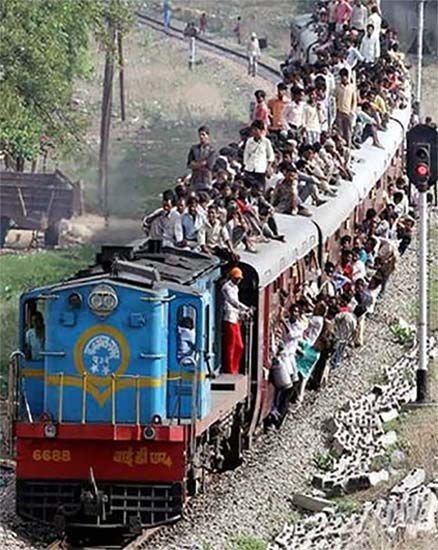

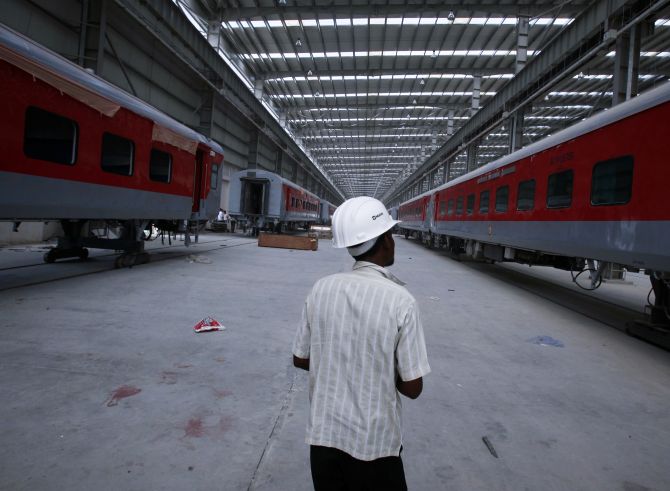
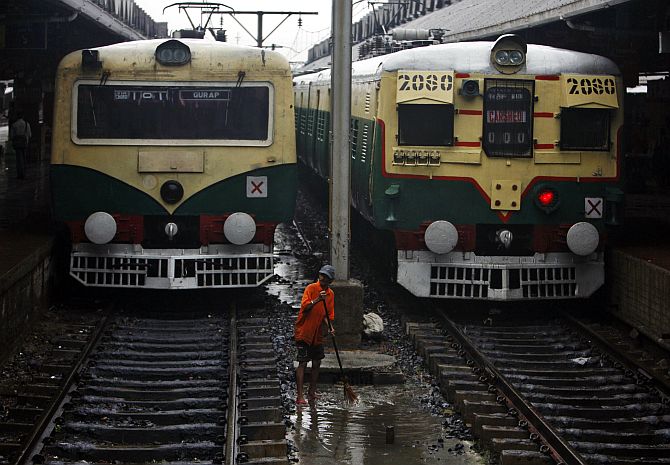
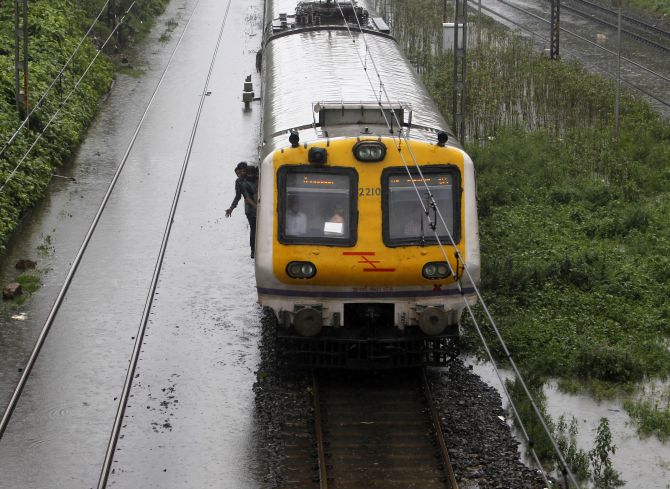

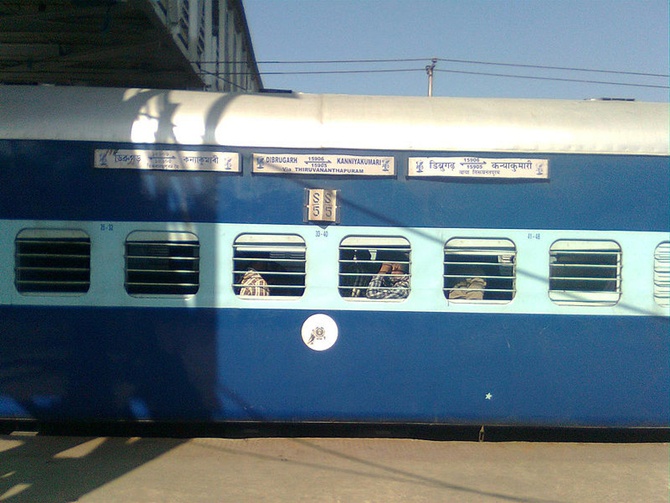
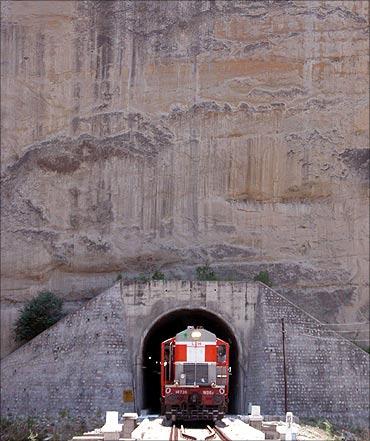
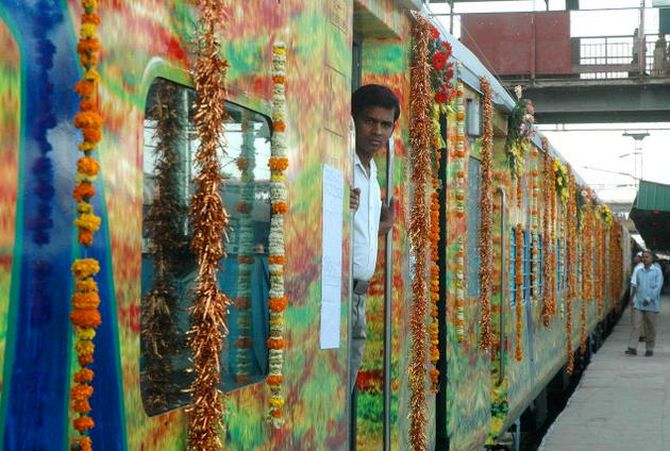
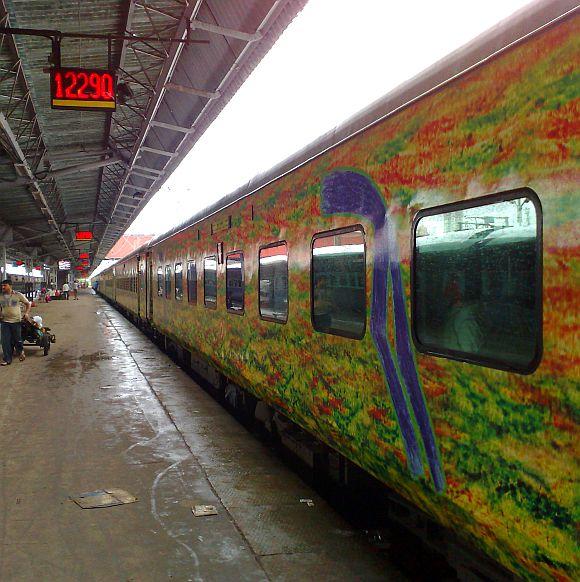

article